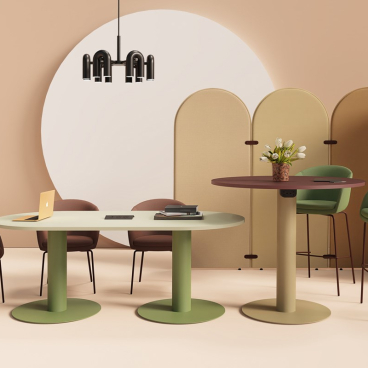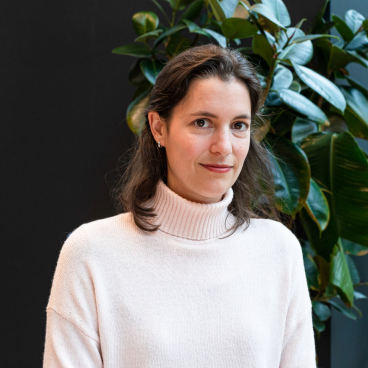Next Generation Conversations: MMU’s Green Week.
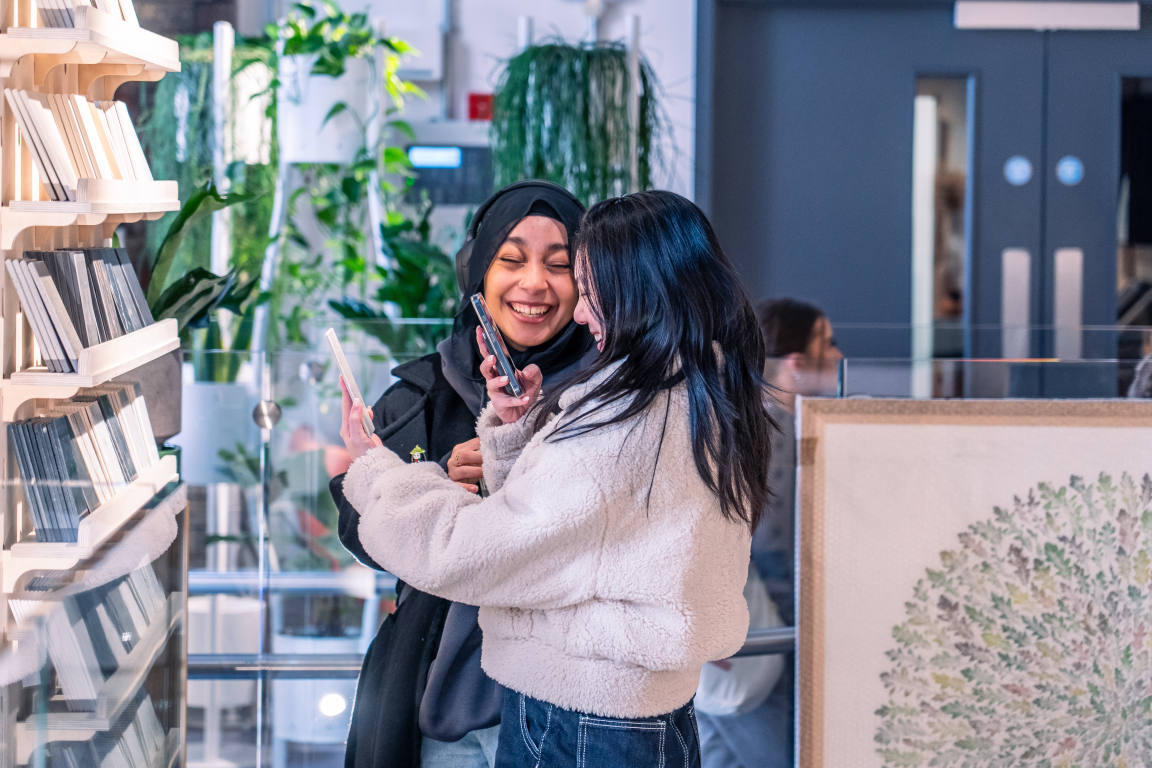
Credit: Tim Ainsworth
The next generation of interior designers are crucial to shaping the future of our built environment. It's imperative that those currently in education are fully immersed in materiality so they are armed with the tools to make responsible decisions and sustainable choices.
This has driven one of our core offerings at Material Source Studio. To support the education providers in our local community, and beyond, in showcasing real-world examples of products and material innovations; opening up direct dialogue with suppliers; and ultimately facilitating these Next Generation Conversations.
Taking what has previously been an online series offline, we recently joined forces with Manchester Metropolitan University’s Interior Design course to support its new Green Week initiative.
Collaborating with Lecturer Lois Blackwell, who started the initiative with support from her colleagues Lucy Gannon and Helen Darnell, we sought to offer students an opportunity to build confidence around making material choices to equip them for their first roles as interior designers.
"Green Week allows our third year students to further embed material choices within their final major projects and challenge their design process", commented Lucy.
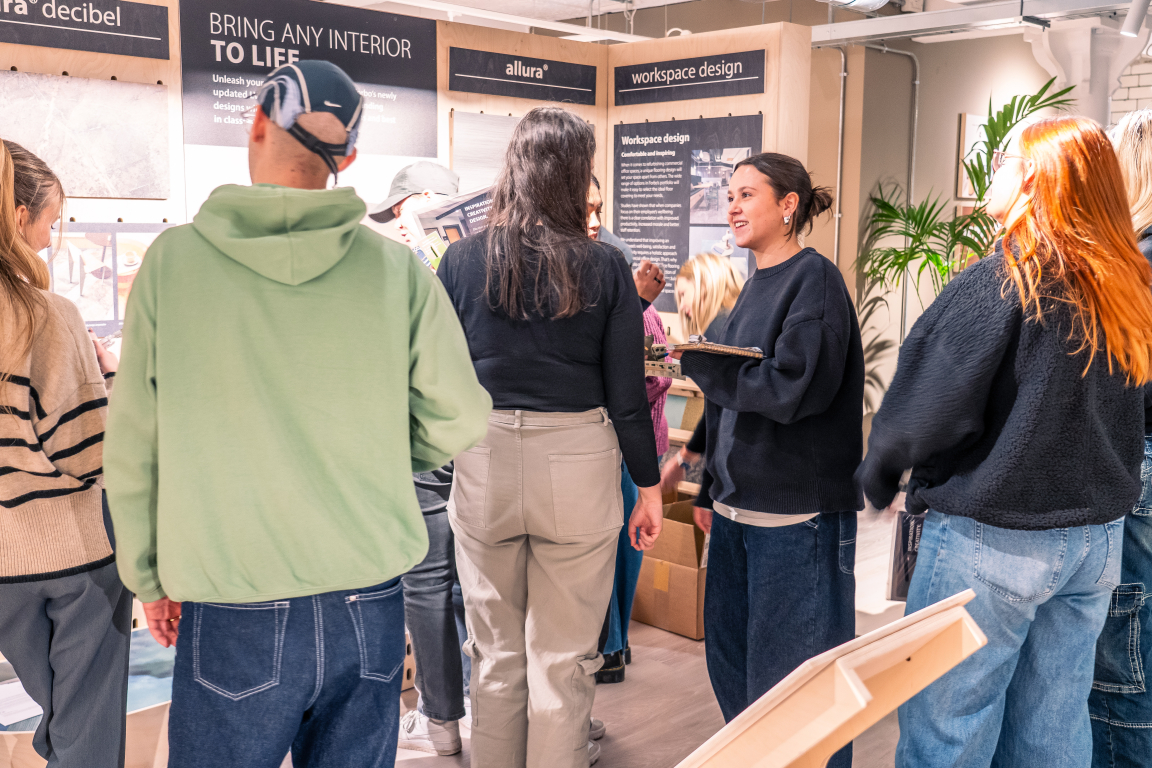
Credit: Tim Ainsworth
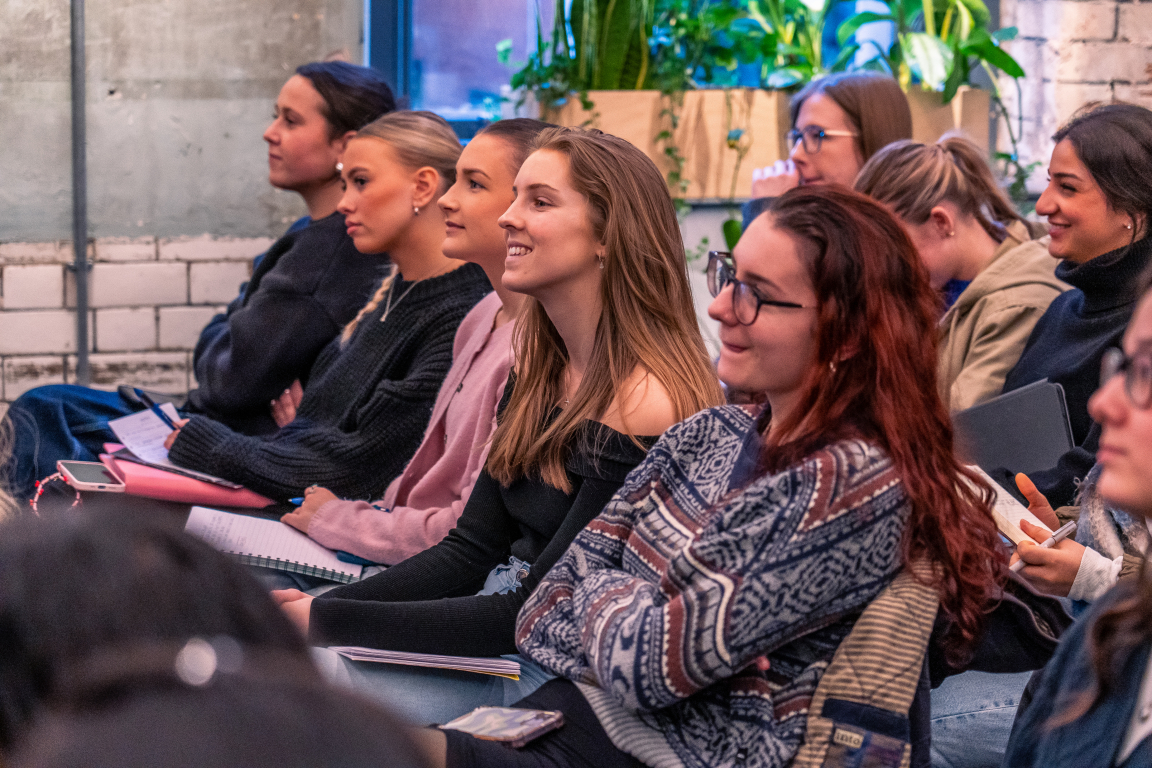
Credit: Tim Ainsworth
Focusing on this ‘healthy materials’ part of the initiative, we invited students to explore our Manchester Studio - including our current exhibition This Is No Longer Speculative - 24 bio and by-product based material innovations for 2024 - before heading into the Theatre to hear presentations from six of our Studio partners - each with strong sustainability values and responsible manufacturing processes.
Kicking off the presentations was Smile Plastics. Lotte Barron provided an in-depth look into the brand's truly unique collection of solid surfaces created from recycled plastic. Lotte highlighted the origins of Smile Plastics, its manufacturing processes and zero waste production model, plus gave an introduction to the latest ranges, including the newly launched Earth Collection – inspired by the Welsh landscape.
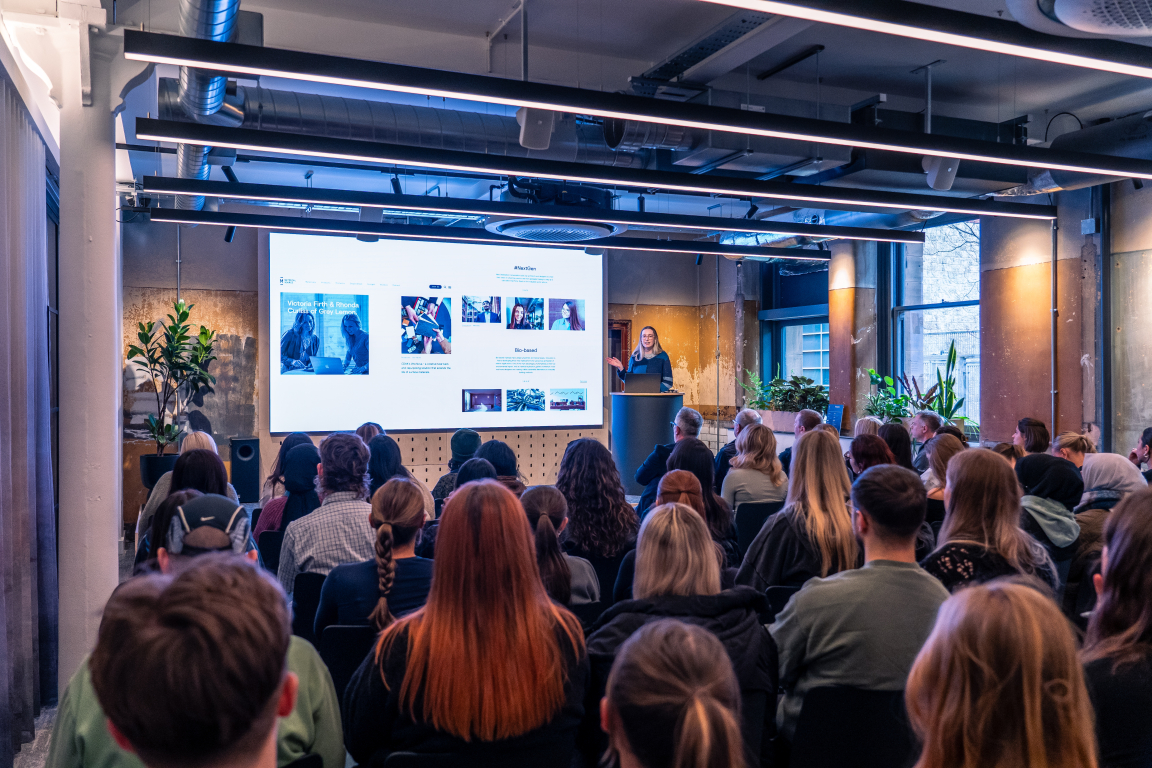
Credit: Tim Ainsworth
From solid surfaces to softer materials, next to present was Ian Burn, director of marketing and sustainability at Camira. Camira is known for its manufacture of natural fabrics. Ian highlighted the many natural ingredients used within its fabric compositions. This included groundbreaking work with nettles, hemp – a renewable and compostable fabric - and flax. Finishing with textile circularity, Ian introduced the students to Camira's revolutionary process of reintroducing waste wool back into manufacturing.
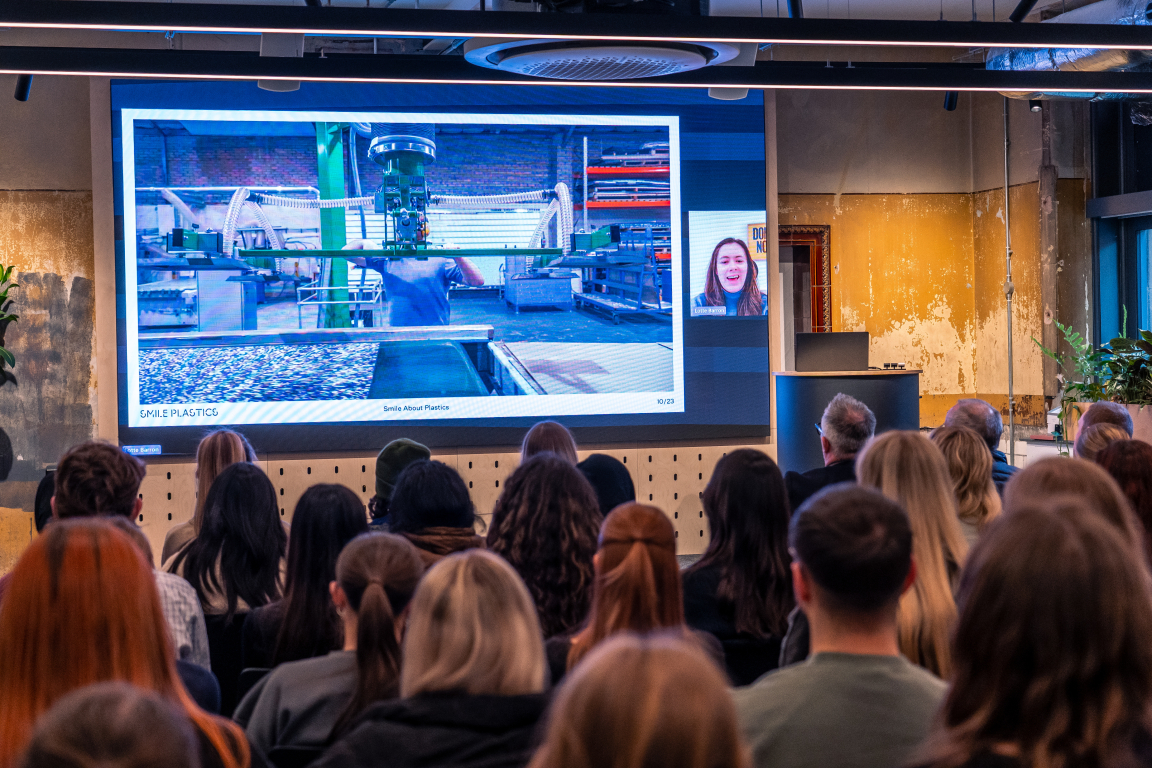
Credit: Tim Ainsworth
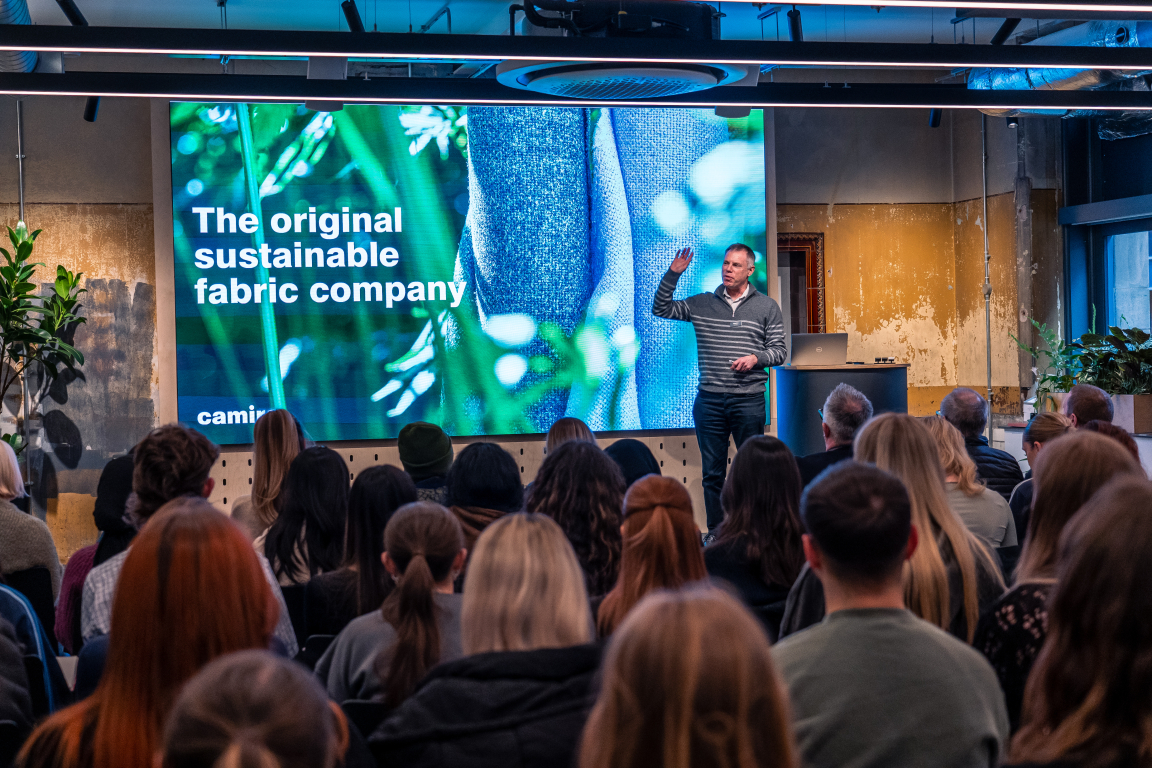
Credit: Tim Ainsworth
Craig Dinsdale from CDUK covered a range of materials, including PaperStone - made from FSC certified recycled paper, cardboard and a natural resin, and Polygood made from 100% recycled PS (Polystyrene) such as, refrigerators, single-use cutlery and electronics. Craig also introduced Vita Nova, a brand new take-back scheme which gives a second life to unwanted materials.
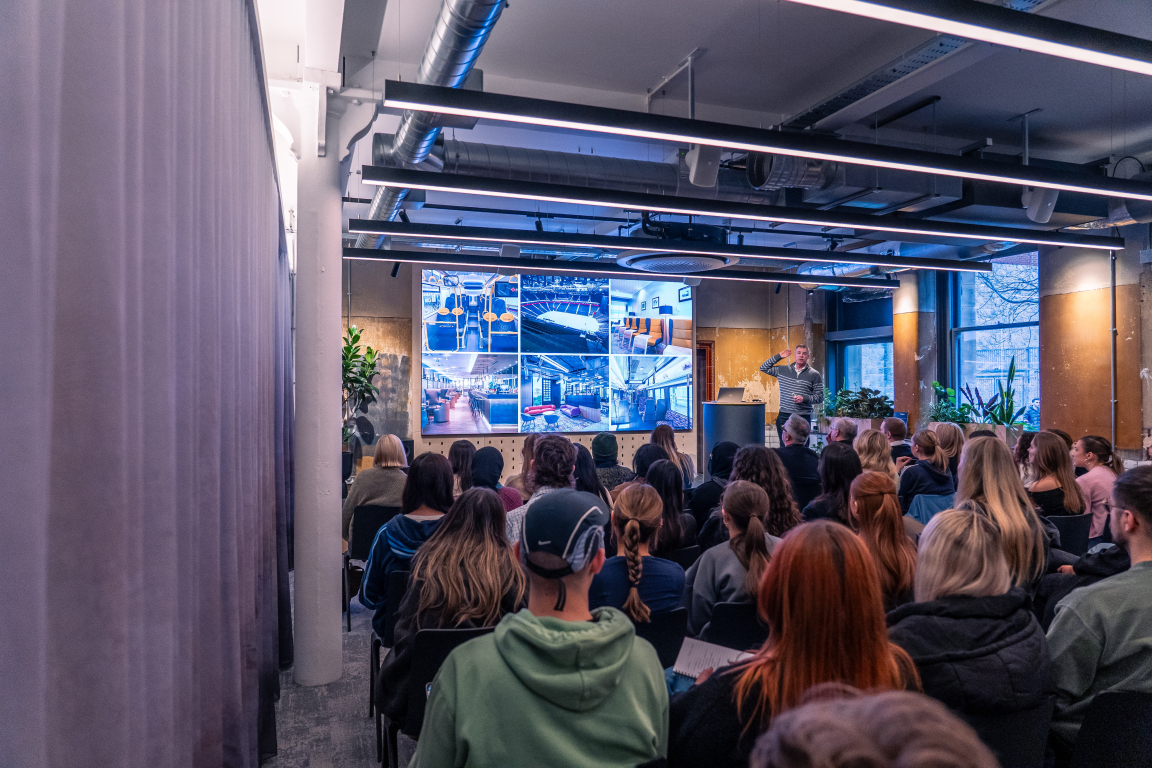
Credit: Tim Ainsworth
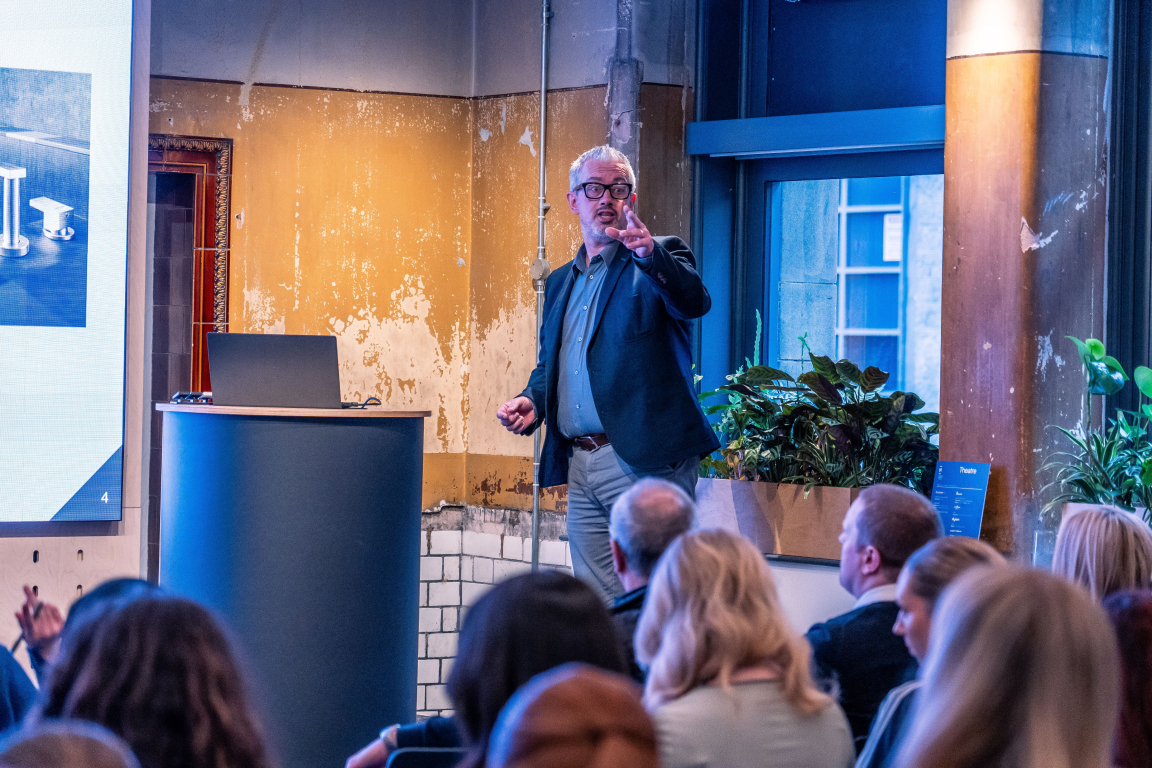
Credit: Tim Ainsworth
Richard Bailey from Crown Paints provided insight into the Hempel Foundation, which supports multiple social, humanitarian, scientific and cultural causes. He also explained the Can Back scheme, an innovative process which takes back paint cans (from any manufacturer) and recycles them. Plus, introduced The Design Collection, an important tool for any budding designer, and the newly launched Clean Air range.
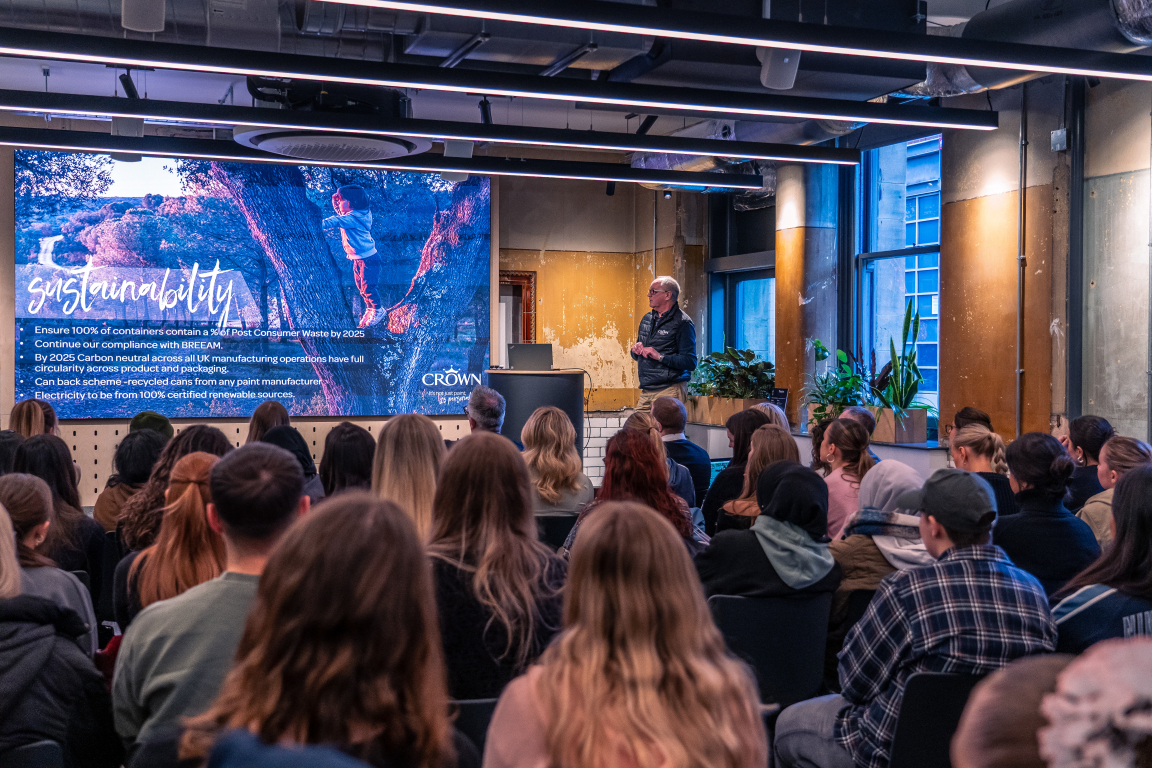
Credit: Tim Ainsworth
Janet Fearnhead from Forbo focused on the brand's flooring system - Marmoleum. From the history of linoleum flooring to a unique manufacturing process and incredible use of up to 98% natural raw materials - as Janet's presentation highlighted, marmoleum is a firm favourite with vast commercial potential.
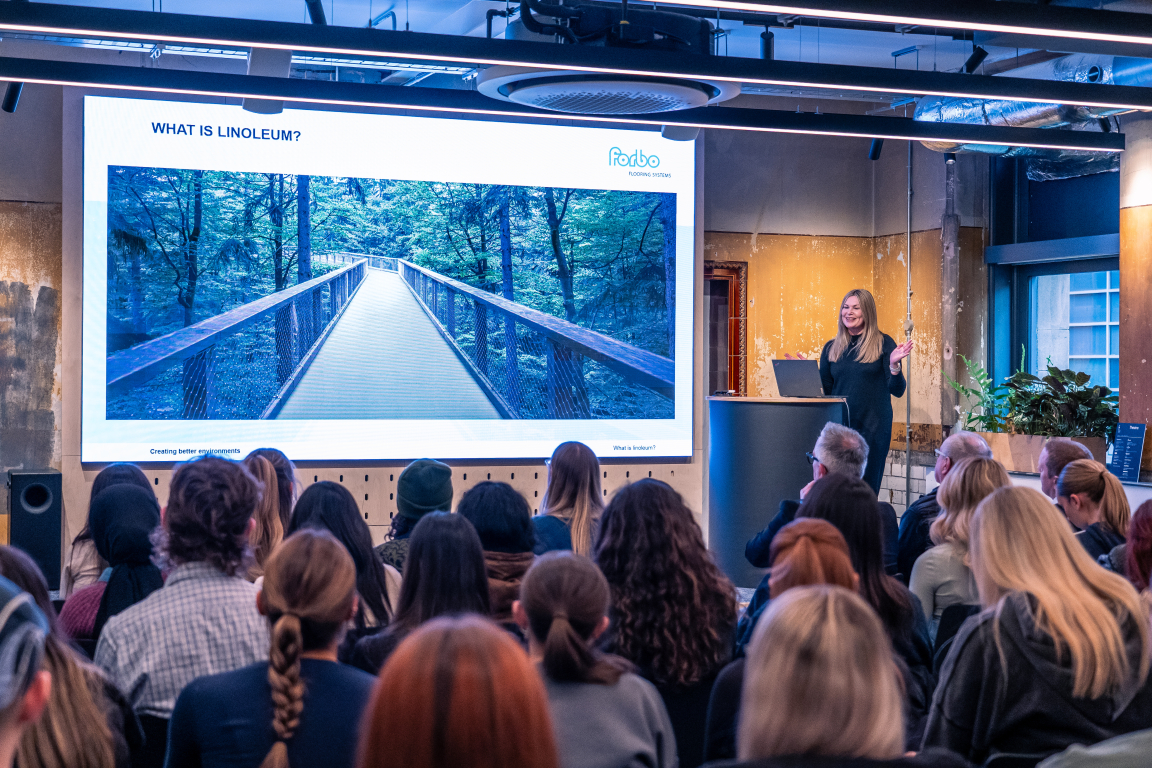
Credit: Tim Ainsworth
Vepa works with a variety of sustainable materials, from biodegradable to recycled content. Sales director, Richard Olver, talked through the processes of the companies’ factory in The Netherlands - including its 'test garden', GreenField, and also explained its collaboration with the Plastic Whale. The result of this is furniture made from PET bottles that are sourced in Amsterdam's canals.
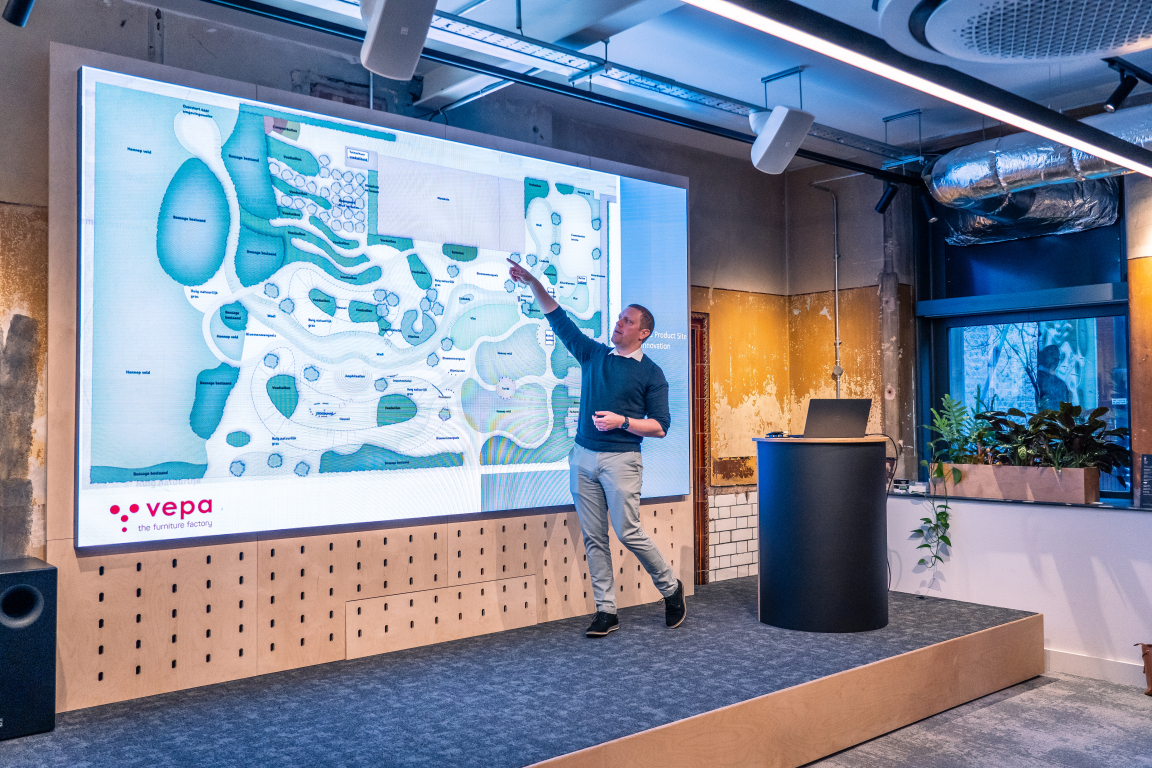
Credit: Tim Ainsworth
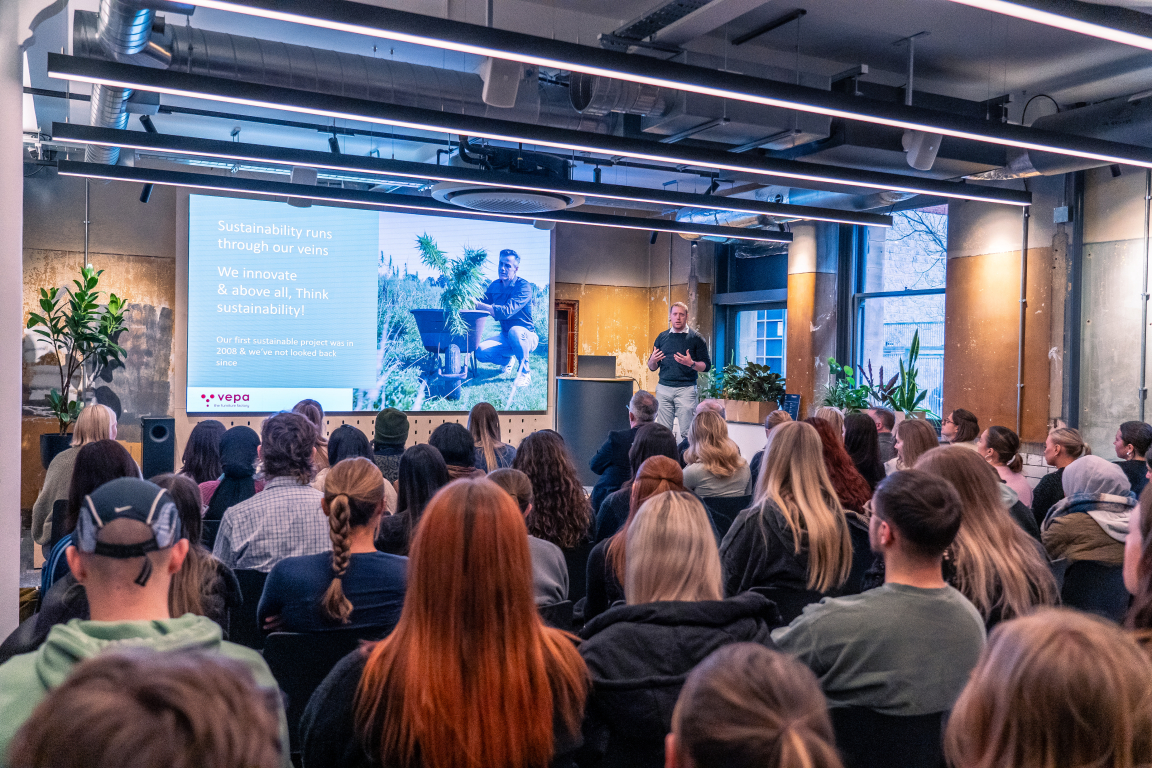
Credit: Tim Ainsworth
After a packed day, the feedback from students was that they were leaving with a wealth of information and inspiration to fuel their next projects. And at Material Source, that's exactly what we aim to provide.
A huge thanks to the Manchester Metropolitan University, and to all our partners that took part in this event. The future of design is clearly bright.



